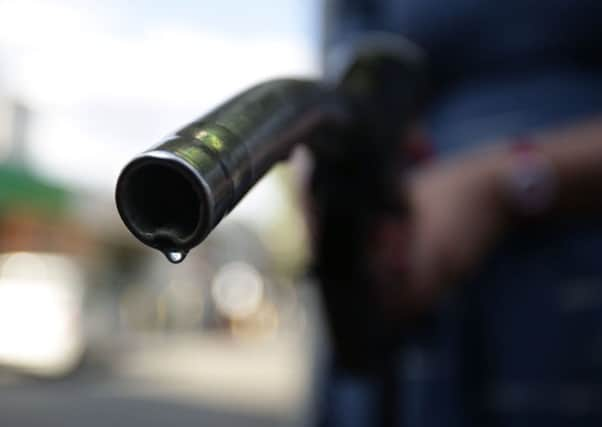YP Letters: Motorists are an easy target over emissions


THE new penalties being imposed on diesel and petrol engined cars illustrates how few factual truths are being revealed in the war against pollution and how a certain sector is being unfairly demonised.
Electric vehicle manufacturers have done something very clever and appealing. They have replaced carbon emissions you can see with carbon emissions you can’t see.
Advertisement
Hide AdAdvertisement
Hide AdYet if these vehicles are charged with electricity from a coal-fired power station, they produce 25 per cent more carbon per mile than a similar gasoline-powered vehicle.
In addition, the lithium batteries have the highest potential for environmental impacts, with lithium mining resulting in greenhouse gas emissions, environmental pollution and human health impacts. In addition, long range electric vehicles have manufacturing emissions 68 per cent higher than for conventional cars. But of course, most of this is invisible to the population and therefore the pipedream continues to grow.
The city of Southampton is one of nine UK cities cited by World Health as breaching air quality guidelines, yet one large cruise ship burns 66,000 gallons a day of some of the most polluting diesel fuel in the world.
The Port of Southampton will often have five or six cruise ships berthed at any one time and each ship pollutes more than thousands of London buses during the course of a day. Consider the emissions from ships using the busiest waterway in the world (the English Channel) and one may begin to wonder how much pollution travels by air over the south of England to our capital city.
Advertisement
Hide AdAdvertisement
Hide AdWe all create pollution either by necessity or choice, but we don’t have the facts presented, nor any say in how draconian charges are levied simply because they suit the Government or environmentalists of the day. Fair and honest they are not and motorists, once again, are clobbered because they are a soft and visible target.
Free meals are no benefit
From: Mark Littlewood, Director General, Institute of Economic Affairs.
FREE school meals provision is already a poorly targeted policy and extending it to all primary school children would be an unacceptable waste of taxpayers’ money. The scheme will end up subsidising middle class and affluent families who don’t need the help, while those who are struggling to make ends meet will feel very little benefit.
Most parents would prefer a tax cut providing them with more choice, rather than this crude and untargeted initiative. Additionally, a significant number of primary schools do not have the facilities to provide these meals in the first place.
Advertisement
Hide AdAdvertisement
Hide AdFor many years now there have been schemes to provide free school meals for disadvantaged children. Universal provision is unnecessary and paying for it by charging parents who elect to send their children to a private school VAT, while still paying their share of tax for state education, is unjustifiable.
Not least because a significant number of children at private schools receive financial support themselves through scholarships.
If politicians want to help disadvantaged children, they should focus on improving teaching and bringing down the cost of living via policies such as liberalising the planning system and deregulating the energy sector to lower fuel prices.
From: Coun Tim Mickleburgh (Lab), Boulevard Avenue, Grimsby.
Advertisement
Hide AdAdvertisement
Hide AdI’M glad Labour are talking about putting VAT on public school fees, something I’ve long advocated, but not pleased to give free meals to primary school children. By all means let the poorest have their meals for nothing, but why should the public as a whole (including those who don’t have offspring) subsidise children who come from better off families?
Big drinkers will still drive
From: Brian H Sheridan, Redmires Road, Sheffield.
YOU carried three reports of road traffic incidents (The Yorkshire Post, April 4).
The first involved a driver who had caused the death of a scooter rider in a Christmas Day collision who went on to commit another offence while six times the drink-driving limit.
The second was a hit and run driver who caused the death of two young girl pedestrians, failed to report the incident, pleaded guilty to a charge of perverting the course of justice and was driving without a licence.
Advertisement
Hide AdAdvertisement
Hide AdThe third was a driver who was breathalysed after a crash in Bradford and was five and a half times the limit.
To my mind, this makes a mockery of mooted plans to reduce our limit to a level where a pint of average strength ale could remove responsible drivers from the roads while the real villains carry on regardless.
I think the present law is just about right. Britain’s roads are statistically among the safest in the world despite the fact that collisions involving drivers who had been drinking, but were not the culprits, are recorded as drink-driving incidents.
Nurses don’t need degrees
From: Peter Hyde, Driffield.
THERE are several problems with the idea that nurses should be required to have a degree.
Advertisement
Hide AdAdvertisement
Hide AdThe first is the cost of gaining one and the second is whether qualified students will be satisfied to stay at the lower scale of nursing?
We need nurses on the wards and the NHS already has too many chiefs and not enough Indians, as the saying goes.
A further question is will a degree make nurses better at dealing with patients? Again I doubt it.